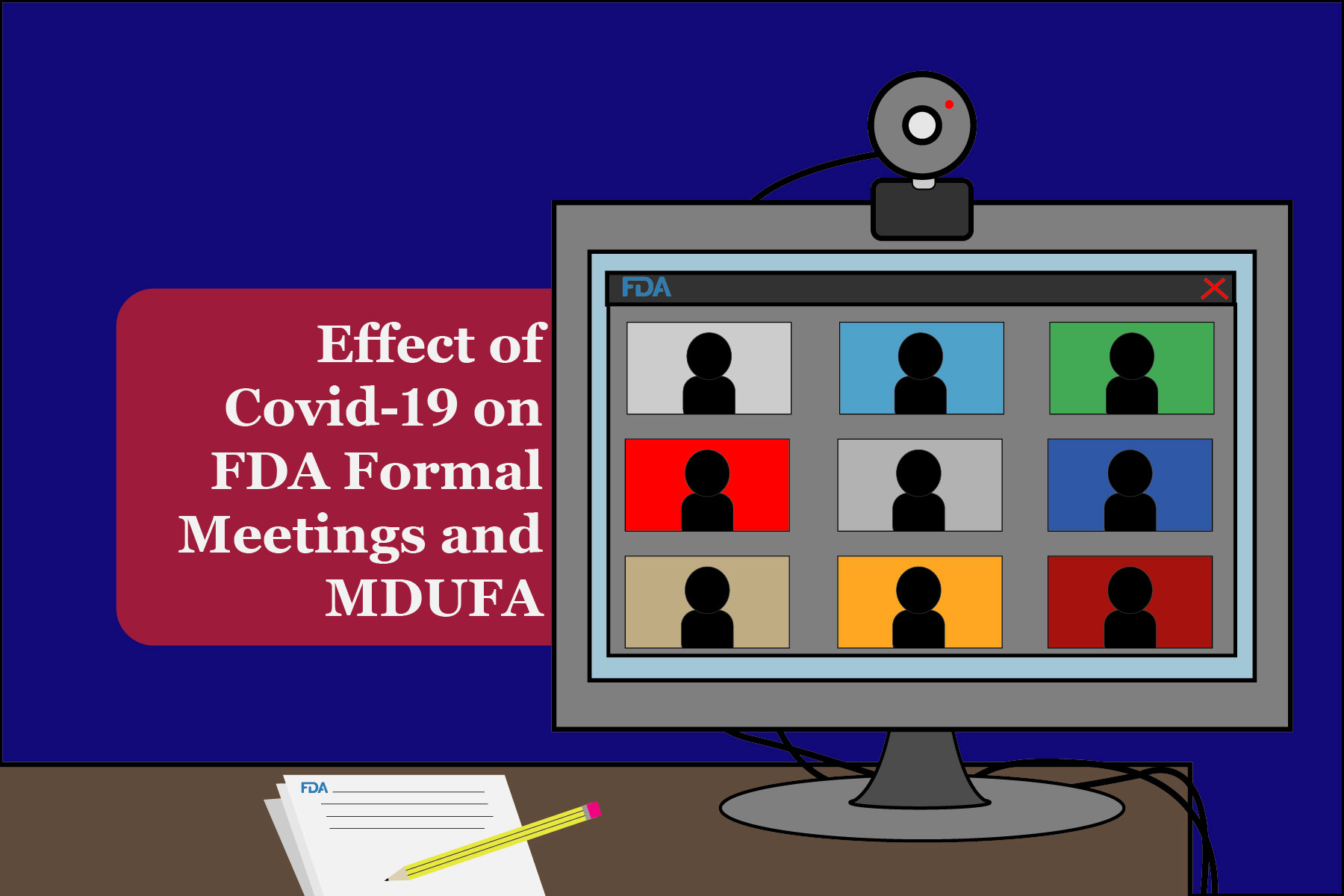FDA released a guidance document on Monday in the form of a question and answer format to help the industry understand the implications of the pandemic on their pre-market submissions made to the FDA.
As per this guidance, FDA says the agency is actively leveraging technology to host teleconferences in place of in-person meetings. FDA also mentions that until further notice, all in-person meeting requests will be handled via teleconferences or written responses. FDA clarifies that it will continue to accept Q-submission requests but will only respond via teleconferences or in the form of a written response.1
FDA also indicates that it is committed to the review timelines laid out in the Medical Device User Fee Amendments (MDUFA), however, the industry should expect some delays since the agency is experiencing increases in Covid-19 essential EUAs and the staff resources at FDA have been assigned to focus on these products which have more statutory deadlines. In the case where the FDA misses the MDUFA decision timeline for pre-market submission, FDA will follow the missed MDUFA decision procedure. If the FDA anticipates missing the MDUFA goal date because of the public health emergency, FDA plans to communicate that with the applicant directly.1
For marketing submissions or applications on hold, FDA generally considers the submission of the application to be withdrawn if the submitter or applicant does not provide a complete response to major deficiency letters for PMA and Humanitarian Device Exemption (HDE) applications within 360 days or additional information letters for 510(k)s and De Novos requests within 180 days. FDA recognizes that applicants may face challenges that could affect their ability to meet the deadlines and is allowing for an extension of 90 days to the applicants whose applications have been put on hold as of March 16th, 2020 and their response date is on or before June 22, 2020.1
Navigating the FDA in these tough times can be difficult. Call us today at 248-987-4497 or email us at info@emmainternational.com to learn more.
1FDA (June 2020) Effects of the COVID-19 Public Health Emergency on Formal Meetings and User Fee Applications for Medical Devices — Questions and Answers retrieved on 06/24/2020 from https://www.fda.gov/media/139359/download






